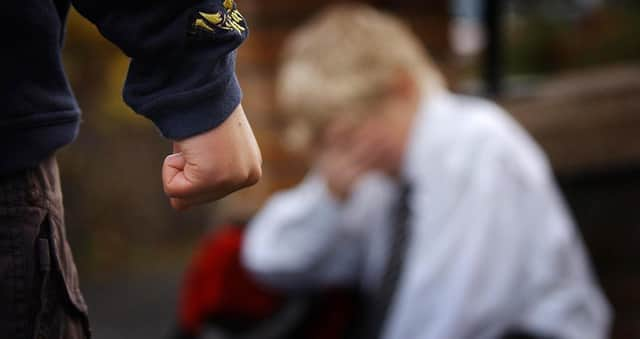School bullying in Lancashire: What to do as a parent after study shows a third are unhappy with the school's response


It comes as the Anti-Bullying Alliance, which coordinates Anti-Bullying Week each year, said staff must be better equipped at tackling bullying to lessen the serious impact it has on children.
Ofsted figures for the year to September 2023 show 13,508 parents were asked if their child has been bullied and whether the school dealt with the bullying "quickly and effectively".
Advertisement
Hide AdAdvertisement
Hide AdOf the 4,361 parents that said the question was relevant to them, 32 per cent disagreed or strongly disagreed that the school handled the bullying effectively.
This matched the wider England figure of 32 per cent of parents said their child's school did not deal with bullying well.
The data covers private and public nurseries, primary schools, secondary schools and special schools.
"We must do more”
Martha Evans, director of the Anti-Bullying Alliance said bullying behaviour is a "persistent problem" in schools.
Advertisement
Hide AdAdvertisement
Hide AdShe added: "We know that almost a quarter of children say they are being bullied frequently face-to-face, so it is unacceptable that understanding how to deal with bullying isn’t a mandatory part of initial teacher training."
"There are many examples of school staff who do a great job for the children that rely on them, but we must do more," she said.
"If we get better at equipping staff to root out the problem, take a whole-school approach to tackling bullying, and make sure there is a senior teacher leading the way, then the serious implications of being bullied can be lessened."
How many don’t feel safe in school?
The figures also showed in Lancashire, 10 per cent of parents said their child was not happy at their school while 7 per cent said their child did not feel safe.
Advertisement
Hide AdAdvertisement
Hide AdDavid Johnston, minister for children, families and wellbeing said: "Bullying is never acceptable, which is why this government is committed to working with schools to create good behaviour cultures and to improve approaches to tackling bullying.
"We’ve created behaviour hubs across the country, included teaching respect and inclusivity as part of the RHSE curriculum and provided more than £3m of funding to anti-bullying organisations to support their vital work."
What to do if your child is being bullied?
Family Lives offer a wide range of support on bullying in schools -from how to approach teachers, to what to do if the school doesn’t help.
Here’s some of their top tips:
- Involve your child in decisions. Talk through solutions with your child so they don’t feel excluded.
Advertisement
Hide AdAdvertisement
Hide Ad- Make it clear to your child’s teacher you want to work together with them to find a solution.
- If things don’t improve, ask to see a senior school leader – in advance. Don’t turn up unexpectedly.
- Record things in writing. Keep a diary of bullying events and discussions in school in case you need to escalate matters.
- Follow up and don’t give up.
- Talk to your trusted friends for support.
- Get professional support if things continue, from the likes of Family Lives.